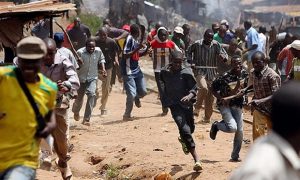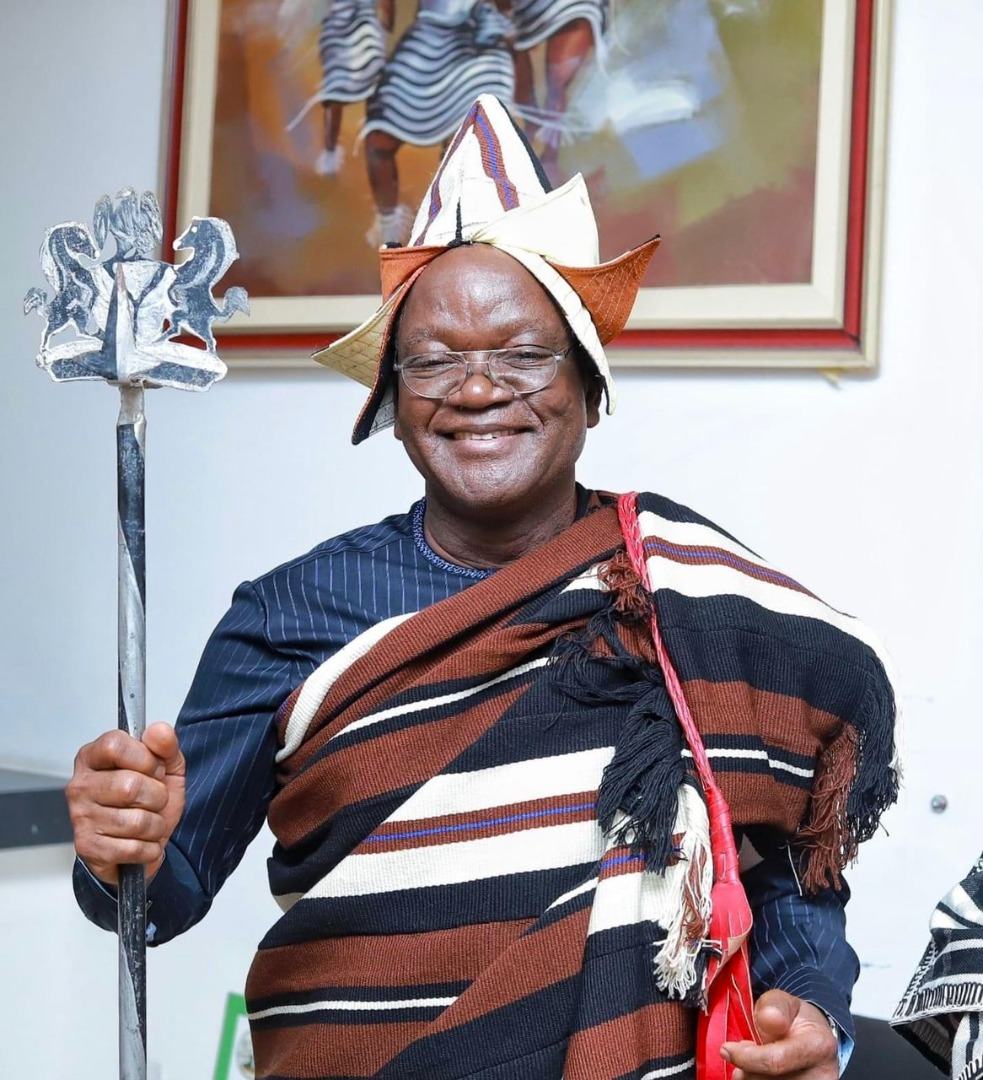idoma news
EXCLUSIVE! Real reason Idoma lost Apa State – Gen Lawrence Onoja (VIDEO)
On Friday, August 10, 2018, former military governor and elder statesman, General Lawrence Anebi Onoja would clock 70 years on planet earth.
Despite retiring from service 20 years ago, the former military governor of Katsina and Plateau States is not tired.
The British-trained infantry general is still bouncy and full of life; he would always remind you that ‘once a soldier is always a soldier.’
Approaching his expansive and explosively jaw-dropping palour where he was already seated and attending to a caller over the phone, he screams your name in a military style and dashes his hand for a shake. Offers you a seat, while asking after your work and family. Simplicity is his middle name.
Ask him to tell you the secret of his agility even at 70, this erstwhile Principal Staff Officer to the late Head of State, Sani Abacha would tell you, “I do a lot of exercise and I don’t allow anything called sugar enters this body.”
Gen Onoja in a recent interview with IDOMA VOICE’s publisher, Ameh Comrade in his Abuja home, revealed the real reason Idoma people lost Apa State.
The ‘old soldier’ whose biography, Echoes of Destiny written by Elvis Attah is set for public presentation, also attributed one of the reasons for the failure of Apa State to what he tagged as ‘petty differences.’
He said, “It was because our population wasn’t up to the criterion, that was why Apa State was not created. Remember, I was PSO to Gen Abacha, meaning in administrative hierarchy, I was the number three. In fact, all the military administrators were reporting to me. Justice Mbanefo, who headed the state creation committee, was reporting to me.
“I was their boss. I did everything, including inviting Justice Mbanefo and his wife to my house, pleaded with him to create Apa State and he said, ‘don’t worry when I get to Benue, I will listen to the people of Benue and get back to you.’
“My office in villa here was used as a meeting point for General Ejiga, AVM Yahaya, Brig Ebije Ikwue, and our other senior. Whenever we met, I would report to my boss, Abacha.
“But unfortunately, when they recommended 12 states and Apa was number seven but on the day Abacha was to create it, he discovered that our population was not up to the requirement. One of the criteria that must be fulfilled was that the population must be 1.2 million and above but we were just 700.
“Gen Abacha also re reminded me how one of Idoma sons insulted me in an interview and ran abroad but he created three additional local governments in Idoma – Agatu, Ohimini and Obi.
Asked if the creationg of Apa State is still possible, Onoja said, “Yes, it is still possible but not by telling lies to the Idoma people by those campaigning for senate or governor.
“We can only get a state if all of us- Idoma sons and daughters come together and form a very formidable front for a common objective.
“It is also possible if the Idoma people can elect somebody as a Senator who understands the politics of this country. A man who can cry out to the country on how we are being marginalized in Benue.”
Is general Onoja a fulfilled man at 70? Hear him. “Surviving the war was a miracle of God. A lot of Idoma officers, who were with me in Port Harcourt were killed. I remember when they brought the dead bodies of George Lawani (younger brother to former deputy governor of Benue State) Col Shambe, a Tiv man, Francis Oluma, a native of Adoka here in Benue. I was very young.
“One day, I just received a call from the late Benjamin Adekule (Black Scorpion) in front of his office. I could remember vividly that what was written on the steel helmet in front of his office was ‘enter my office at the pain of death.’
“Adekunle posted me to meet my kinsman, Ignatius Obeya who was the then Brigadier Commander at Itu, CrossRiver State.
“At that time, you couldn’t connect Port Harcourt from Calabar because there was no road, you had to go through Aba, which was already held by Biafra.
“So, we had to connect through Igwenga to Abak, then we connected Oron before finally crossing to Calabar.
“I reported to Brig Obeya, Rtd and I was part of the operation from crossing Calabar to Itu through a river called Ikoto Okpora. I was made a brigade major to Obeya to ensure that the three battalions in the brigade were effectually controlled and commanded to fight the war.
“We were facing a place called Arochukwu across the water at the time. The Biafra soldiers were on the other side while the Nigerian troops were on this side. It was very funny, because every morning, we would wake up and talked to ourselves across the water.
“The Biafra soldiers would tell us, Gowon and Ojukwu are enjoying themselves in Aburi and we are busy fighting ourselves here, please give us some food, we would then throw cigarettes and sometimes beer to them across the water. “But after at about an hour, we would start shooting at ourselves. I went through all this and came out alive, I think at 70, I would say I am a fulfilled man.”
Watch full interview below.























